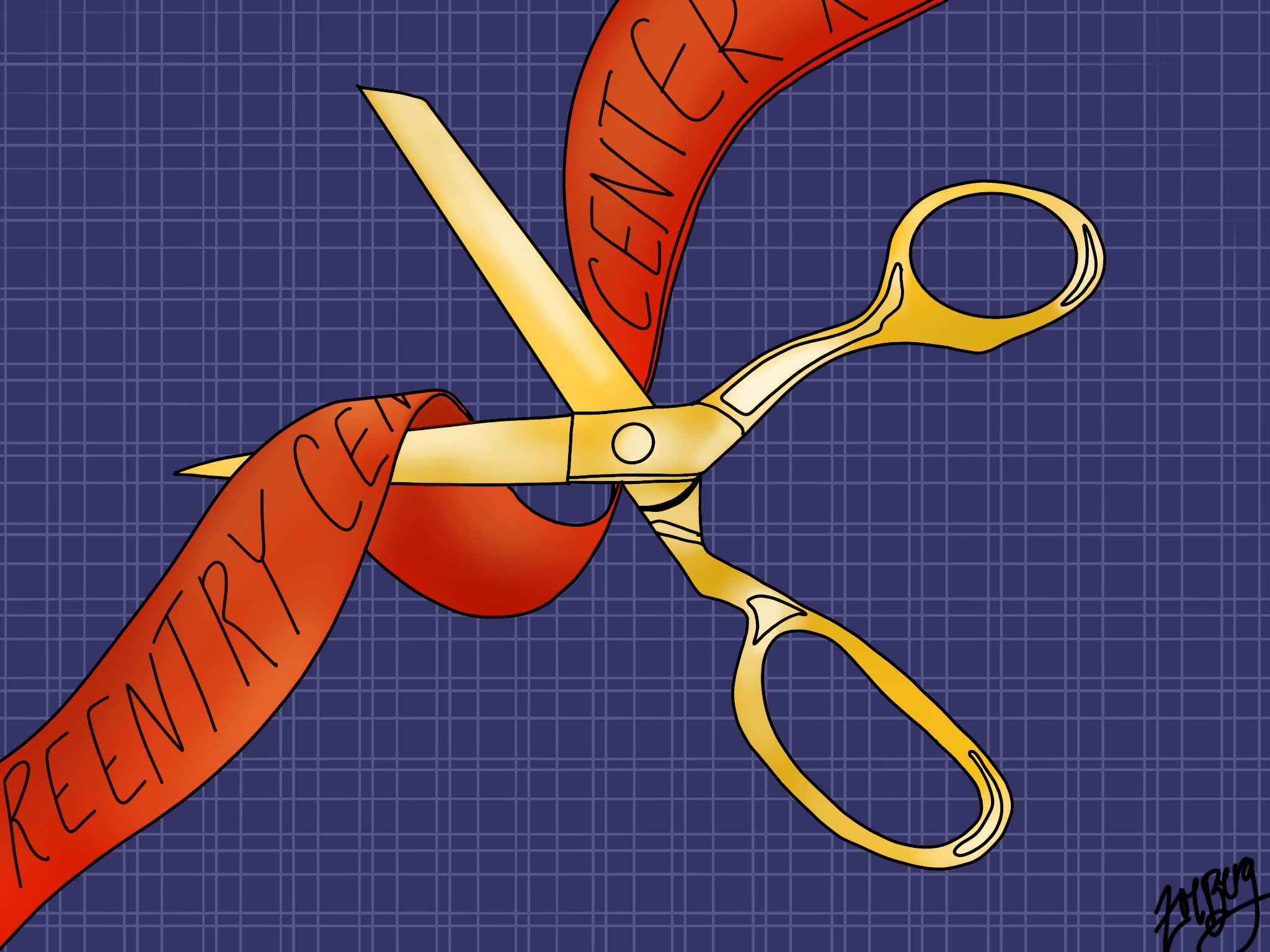New Haven officially opens prisoner reentry center, calls for related legislation on state-wide level

Zoe Berg, Photo Editor
Just hours after championing the official opening of a prisoner reentry center in New Haven, Elm City officials engaged in a statewide forum for proposals aiming to reduce social and economic barriers for formerly incarcerated individuals.
On Thursday afternoon, New Haven opened its first prison reentry center in Fair Haven — providing employment resources and social support for individuals reentering society. After the opening, the Connecticut Reentry Collaborative Policy Working Group hosted a Zoom call on Thursday night to present its 2021 legislative agenda.
The group was joined by formerly incarcerated individuals, local advocacy groups and government leaders such as New Haven Mayor Justin Elicker. Some of the legislative proposals put forth by these groups have already been introduced in the Connecticut General Assembly. Those include erasing criminal records and investing in reentry programs across the state. Thursday’s event marks the first of many virtual events scheduled for February and March regarding the groups’ prison reentry advocacy efforts.
“We should be a society that allows people to have a second chance, that underscores that people in many ways, through no fault of their own — because of a history of not having adequate resources and support — have ended up in a life where they have made some mistakes,” Elicker said during Thursday’s meeting.
Elicker’s words come at a time that criminal justice reform advocates say has been especially harmful for “justice-impacted” individuals — those who have been formerly incarcerated. Unemployment rates for formerly incarcerated people have historically been higher than those who have not been incarcerated. The economic turmoil of the COVID-19 pandemic has also decreased job opportunities and housing options.
Beth Hines, who moderated the forum, tackles these issues as the executive director of the Connecticut organization Community Partners in Action. Her group runs a prisoner reentry program in Hartford, which provides formerly incarcerated individuals with educational, housing, employment and substance abuse assistance.
Hines also co-chairs the Greater Waterbury Reentry Roundtable, which has been working to create a center in Waterbury modelled on the services offered in the Hartford center. One of the legislative proposals mentioned on Thursday’s Zoom call — An Act Concerning Community Crisis Response Tams and Reentry Centers — would provide funds for the creation of reentry centers such as the one planned in Waterbury.
“One of the things that we want to see take shape in Connecticut with the closing of some of the prisons that we anticipate is that [funds] will be reinvested in community providers and hopefully we can have reentry centers in urban areas all across the state,” Hines said.
According to Elicker, correctional institutions annually send 900 to 1,000 individuals back home to New Haven. Over a 10 year period, those numbers add up to about 7 percent of the city’s population. Bridgeport Mayor Joe Ganim shared similar statistics for his city.
Another legislative priority that was floated on the call is the “Clean Slate” bill. If passed by the Connecticut General Assembly, the state will “erase” the records of misdemeanors and felonies from many formerly incarcerated individuals’ records.
Tiheba Bain, director of coalitions for the National Council for Incarcerated and Formerly Incarcerated Women and Girls, spoke about her experience of being denied a job after an employer discovered she committed a violent crime over 15 years ago. Now, she works with groups such as the ACLU-CT to assist others who have been unable to secure housing and employment.
“[The Clean Slate Bill] is in everyone’s best interest,” Gus Marks-Hamilton, campaign manager for the ACLU-CT Smart Justice Campaign, said. “If people who are coming out of incarceration are working, are productive [and] are able to support themselves and their families, it is going to make Connecticut a better state, it’s going to make Connecticut a stronger state.”
New Haven’s new reentry center may also provide the results to affirm this mission. Though it officially opened on Thursday afternoon, local prison reentry assistance organization Project M.O.R.E. and the city administration’s Project Fresh Start have already run a successful pilot program of the center over the last year. According to Project M.O.R.E. President and CEO Dennis Daniels, the program provided former prisoners with employment help, educational programming and assistance with public benefits.
Carlos Sosa-Lombardo, director of the New Haven Prison Reentry Department, said New Haven’s reentry center cross-collaborated with other centers to exchange helpful advice and improve the program.
“We are taking a broad and comprehensive approach to increase opportunities for formerly incarcerated individuals, move towards a social services approach to public safety, and reduce recidivism,” Sosa-Lombardo said in a press release on Thursday. “We are setting returning residents up for success.”
As of Feb. 1, there are 9,100 inmates in the Connecticut Department of Correction.
Talat Aman | talat.aman@yale.edu
Interested in getting more news about New Haven? Join our newsletter!







